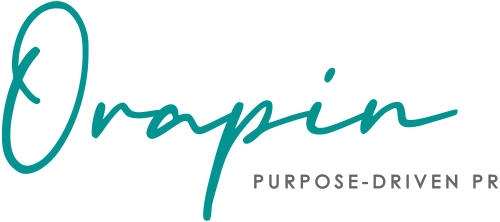
As PR professionals, we are wordsmiths. When we support our clients with their communications efforts, we choose words with intention and we recommend that all purpose-driven brands and leaders do the same in their own communications, be it via their Twitter accounts, e-newsletters, or even internal emails. Words have power, and how one selects them and arranges them in a sentence can create wildly different frameworks and perspectives on the “same” message. With the Black Lives Matter and LBGTQ rights movements we have seen how powerful communication can be and just how important it is to choose words wisely. The former CEO of CrossFit can attest to the fact that people are paying attention, and yes, they really do care!
We are fortunate to work with many purpose-driven organizations and leaders who are using their gifts and have dedicated their work to change the world for the better. As recent social justice movements have come to the forefront, it is critical for executives and key leaders (for-profit and nonprofit) to be conscious about how they speak to and about the work they’re doing and those they serve. And it’s not just purpose-driven brands that are having to think about their communications under a new framework, it is every business, from large multinational consulting firms to those on the proverbial Main Street. Communication is an art form, it always has been, but now more than ever we are seeing just how important it is to frame messages in a way that celebrates equity, diversity, and inclusion.
One concept we’ve been thinking about a lot lately is the difference between “asset-framing” and “deficit-framing” in our communications. Asset-framing defines people by their aspirations and contributions before acknowledging their challenges. On the flip-side, deficit framing defines people by their problems. Words such as “at-risk” or “vulnerable” describe a problem. They are used often to “help” audiences see that there is a “crisis” and a great need for the organization’s work and consequently the public’s support. Deficit-framing, at its core, uses words that perpetuate stigma and don’t acknowledge hope or the valuable contributions that a population most certainly has to offer.
Your organization is doing admirable work to support people and its cause, is it not more valuable to highlight the aspirations of the individual than the problems within their environment? A simple way to audit your current messaging framework is to ask yourself – would you use the same language to talk about the individuals you serve when speaking to a group of donors versus speaking directly to the constituents themselves?
As communicators, we have a responsibility to be conscious of how our words and work can contribute to bias and be considerate of how our messages can undermine the impact we’re trying to achieve. Organizational leaders have a voice and platform and therefore an opportunity to model asset-framing. It is our responsibility to highlight the contributions of those around us, to define people by the positive work that they do as opposed to the challenges they face, and to shift the narrative. At Orapin, we believe those who are working to make a difference in the world deserve to be known, supported, sought-after, and celebrated. We vow that our work will support those organizations working towards a more equitable and inclusive world.
Photo by Christina Morillo from Pexels
Rhiannon Hendrickson is the founder and CEO of Orapin, which helps purpose-driven organizations transform their random acts of PR into a strategic, consistent approach that generates greater awareness and impact. She has worked with organizations of all sizes across myriad industries and causes to develop earned media and thought leadership programs that generate awareness, engagement, and, ultimately, support for those that are making a meaningful impact.
